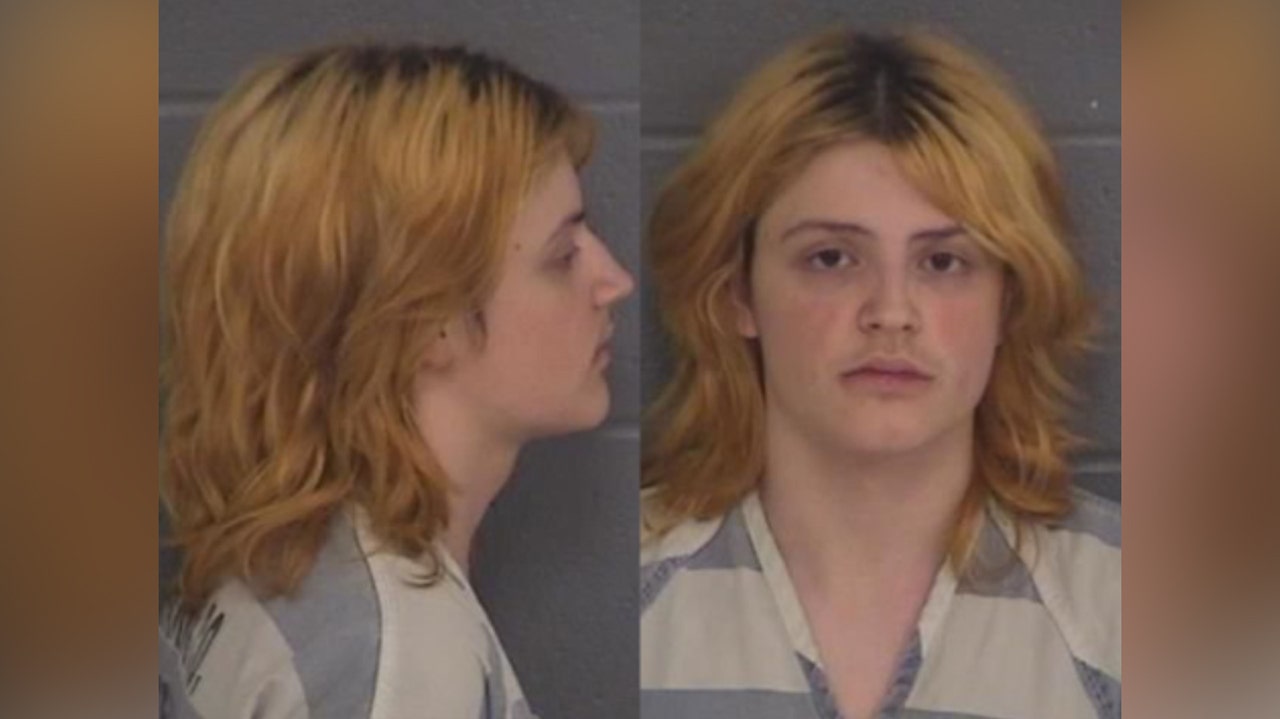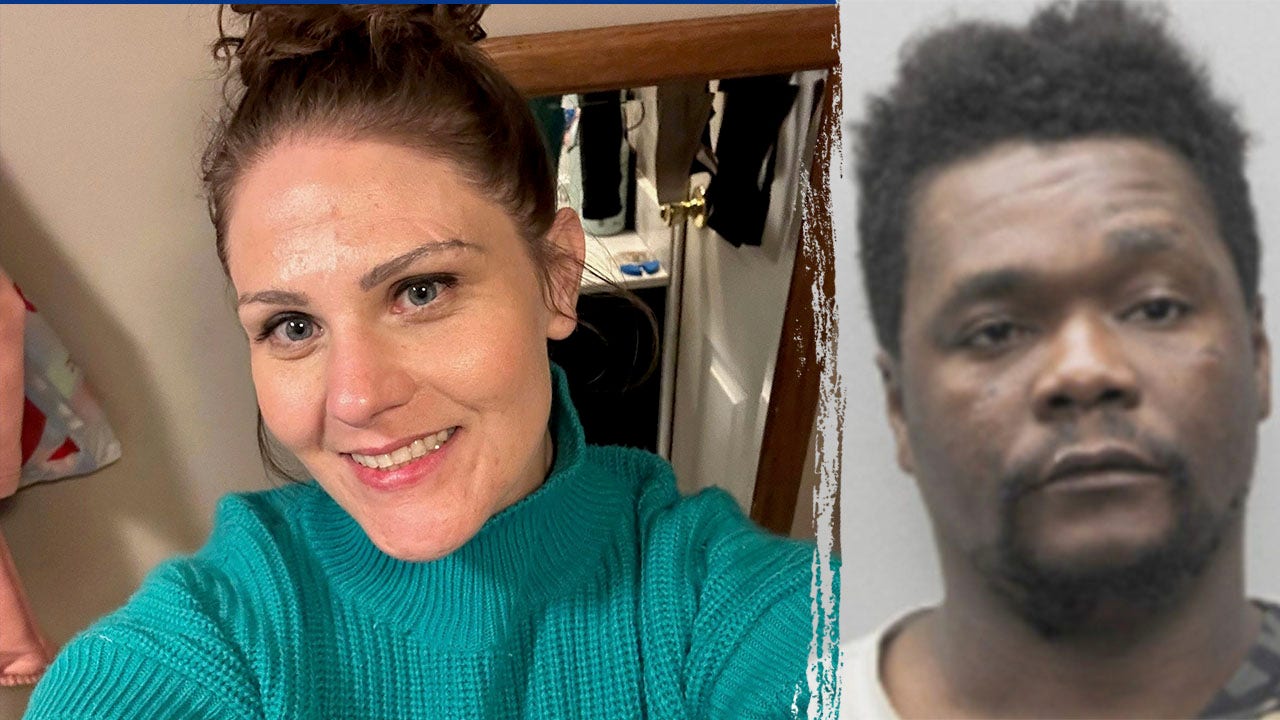Southeast
Who is the alleged Georgia school shooter? What we know

This is a developing story.
Colt Gray, the alleged gunman who opened fire at Apalachee High School in Barrow County, Georgia, killed four people and injured at least nine Wednesday morning when he began shooting at innocent victims inside the school, police say.
Officials said the four victims killed were two students, Mason Schermerhorn, 14, and Christian Angulo, 14, and two teachers, Richard Aspinwall and Christina Irmie.
Gray, a 14-year-old student at Apalachee High School and the sole suspect, opened fire using an “AR-platform style weapon,” according to GBI Director Chris Hosey.
During a press conference Wednesday evening, Hosey said that officials are still investigating where Gray obtained the weapon.
GEORGIA SCHOOL SHOOTING: LIVE UPDATES
A joint statement from the FBI’s Atlanta field office and Jackson County Sheriff’s Office was released on Wednesday and revealed that law enforcement received an anonymous tip in 2023 about online threats regarding a possible school shooting.
The subject referred to in the statement was a 13-year-old who “is the same subject in custody related to today’s shootings at Apalachee High School,” the FBI said.
“The FBI referred this information to the Jackson County Sheriff’s Office for action,” Hosey said.
“The Jackson County Sheriff’s Office identified and located Gray, who is our suspect in this case. They conducted an investigation at that time and there was no probable cause for arrest or to take any additional law enforcement action. This is not recent. This is in the past, but we wanted to bring that to your attention because we are pursuing that.”
In accordance with investigations, law enforcement is also looking into prior contact between Gray and his family and the Department of Family and Children Services, according to Hosey.
“This is still a very fluid investigation,” Hosey said. “It is still very active.”
At approximately 10:20 a.m., around two hours after classes at Apalachee had begun, the Barrow County Sheriff’s Office responded to reports of an active shooter.
“Within minutes, law enforcement was on scene as well as two school resource officers assigned here to the school,” Hosey said Wednesday afternoon.
“Once they encountered the subject, the subject immediately surrendered to these officers, and he was taken into custody,” Hosey added.
APALACHEE HIGH SCHOOL STUDENTS RECOUNT HORROR OF DEADLY SHOOTING
Cars are parked on the sides of a road as law enforcement officers work at the scene of a shooting at Apalachee High School in Winder, Georgia, U.S. September 4, 2024. (REUTERS/Elijah Nouvelage)
Barrow County Sheriff Jud Smith said Wednesday night that teachers at Apalachee High School are individually armed with a Centegix ID which alerts law enforcement officers of an active incident when a button is pressed.
“The protocols at this school and this system activated today prevented this from being a much larger tragedy than what we had here today,” Hosey said.
“Those that are deceased are heroes in my book,” Hosey told reporters. “Those that are in the hospital recovering right now are heroes in my book.”
Hosey added that joined in heroism are the faculty and staff at Apalachee for their admirable efforts in acting quickly and protecting the lives of innocent students.
An ambulance departs Apalachee High School after a shooting at the school Wednesday, Sept. 4, 2024, in Winder, Ga. (AP Photo/Mike Stewart)
GEORGIA HIGH SCHOOL WHERE DEADLY SHOOTING HAPPENED GETS WAVE OF EMOTIONAL RESPONSES FROM FOOTBALL RIVALS
Smith advised that Gray is being held at a detention center and will be transported to Regional Youth Detention Centers (RYDC) in Dalton.
He will be charged with murder and prosecuted as an adult, according to Hosey.
“When someone preys on kids, it’s tragic,” Smith said. “Pure evil did what happened today.”
Local law enforcement is coordinating both the investigation and charges with District Attorney Brad Smith of the Piedmont Judicial Circuit.
“The priority right now for us, within this investigation, is to gather all the facts,” Hosey said. “This is a murder investigation.”
Surviving victims have been taken to local hospitals to be treated for various degrees of injury, according to law enforcement.
Read the full article from Here

Southeast
Virginia Democrats talk affordability — and vote to nearly triple their own pay

NEWYou can now listen to Fox News articles!
The Virginia State Senate and its Democratic majority may have voted to nearly triple their pay if a provision inserted into their final budget survives the House reconciliation process and reaches Gov. Abigail Spanberger’s desk.
The development comes as Spanberger has centered her campaign on “affordability,” with Richmond Democrats echoing that they are working to improve their constituents’ personal finances.
Virginia’s legislature itself was founded as a part-time, gentleman’s chamber, where lawmakers would return to their day jobs when Richmond wasn’t holding session.
Virginia Gov. Abigail Spanberger signs executive orders. (Win McNamee/Getty Images)
Proponents of raising the current 1988-established salary of $18,000 for senators and $17,640 for delegates say the structure restricts who can afford to serve as a lawmaker today. Lawmakers also qualify for a $237 per diem, mileage reimbursements, and coverage of office, meeting and other expenses.
Senators’ new salary would be $50,000.
Republicans were quick to criticize the final budget, with the Virginia Senate Minority Caucus saying in a statement that “teachers got a 3% raise, but Democrats give themselves 300%.” The actual increase would be closer to 178%, though one could say the new salary would be 300% of the original.
“The affordability hoax just gets worse and worse,” the caucus said, adding that the chamber’s majority killed a repeal of the car tax — something GOP gubernatorial nominee Winsome Sears ran on — while increasing the state budget by $1 billion overall.
Sen. Mark Obenshain, R-Rockingham, told WVTF it is the “wrong time” to address lawmaker pay.
NEW DEM STAR’S QUICK HARD-LEFT TURN AFTER ‘MODERATE’ CAMPAIGN WON HER COVETED RESPONSE TO TRUMP: LAWMAKER
“It’s supposed to be affordability for working families across Virginia, not members of the General Assembly,” he said.
Virginia’s legislature — the oldest continuous legislative body in the New World — has been making laws since its inception as the House of Burgesses in Colonial Williamsburg, where Spanberger gave the Democratic Party’s State of the Union response.
In her speech, she claimed President Donald Trump is the one “enriching himself, his family and his friends” and said Republicans are the ones “making your life more expensive.”
“I traveled to every corner of Virginia, and I heard the same pressing concern everywhere: costs are too high. In housing, healthcare, energy, and childcare,” she said.
“Americans deserve to know that their leaders are focused on addressing the problems that keep them up at night.”
“Democrats across the country are laser-focused on affordability — in our nation’s capital and in state capitals and communities across America,” Spanberger said Tuesday.
The pay raise could be moot if the Democrat-controlled House of Delegates does not amend its own budget proposal to include the provision.
CLICK HERE TO DOWNLOAD THE FOX NEWS APP
The House’s budget includes $137 million for expanded childcare access, a minimum wage increase to $13.75 in 2027 and $15 in 2029, and a $20 million appropriation for state employees’ and home health care workers’ collective bargaining, according to Washington’s ABC affiliate.
Fox News Digital reached out to the governor, as well as the House and Senate minority leaders, for further comment.
Read the full article from Here
Southeast
Virginia murder suspect in bus stop stabbing had lengthy criminal history, multiple dropped charges

NEWYou can now listen to Fox News articles!
A Virginia murder suspect accused of fatally stabbing a woman at a bus stop earlier this week has a lengthy criminal history filled with multiple arrests, but was let back onto the streets nearly every time.
Abdul Jalloh, 32, is charged with the Monday night killing of Stephanie Minter, 41, of Fredericksburg, at a bus stop shelter, the Fairfax County Police Department said.
Minter was found by officers with stab wounds to her upper body and pronounced dead at the scene, police said.
Abdul Jalloh, 32, is accused of killing Stephanie Minter, 41, at a Virginia bus stop. (Fairfax County Police Department; provided)
Jalloh, 32, who was seen on surveillance cameras exiting the bus with Minter at Richmond Highway and Arlington Drive, was arrested the next day.
He was arrested at a liquor store after an employee called 911. At the time, officers arrested him for allegedly shoplifting. Investigators linked him to the murder a day later.
Authorities were still trying to determine a motive for the killing and what led to the deadly stabbing.
A search of online court records revealed Jalloh has more than a dozen arrests in northern Virginia, including on charges of petty larceny and malicious wounding.
In most of the cases, prosecutors dropped the charges, FOX D.C. reported.
REPEAT OFFENDER ON PAROLE FOR MURDER TIED TO BRUTAL JAIL ASSAULT, ESCAPE HOURS AFTER ROBBERY
Abdul Jalloh seen on a bus in Virginia. (Fairfax County Police Department)
Laura Birnbaum, the chief of staff for Fairfax County Commonwealth’s Attorney Steve Descano, said Jalloh was known to the district attorney’s office and was “acutely aware of the risk he posed to the community.”
“That is why we convicted the defendant of a 2023 malicious wounding charge, and have since made every effort to hold him accountable each subsequent time that he has come in contact with the criminal justice system, including asking him to be held in custody whenever possible,” Birnbaum said.
“Unfortunately, the defendant in this case also had a history of selecting victims with no fixed address – some of the most vulnerable members of our community,” she added. “In multiple cases, we were unable to move forward with prosecution because victims could not be located or contacted.”
Stephanie Minter, 41, was killed on Monday after getting off of a bus in Virginia. (Provided)
CLICK HERE TO DOWNLOAD THE FOX NEWS APP
An obituary for Minter described her as a “happy, jolly” person.
“A beam of light in dark places,” the obituary states.
Read the full article from Here
Southeast
Dem governor under fire after illegal alien allegedly stabs woman to death at bus stop: ‘Heinous’

NEWYou can now listen to Fox News articles!
EXCLUSIVE: The Department of Homeland Security is calling on Virginia’s Democratic Gov. Abigail Spanberger to ensure local law enforcement cooperates with federal immigration officials by handing over an illegal immigrant with a lengthy criminal record who allegedly killed a woman earlier this week at a Virginia bus stop.
Police in Fairfax County, Virginia, arrested an illegal immigrant from Sierra Leone earlier this week on charges of second-degree murder after he allegedly fatally stabbed a woman, Stephanie Minter, 41, who was found dead at a local bus stop with several wounds to the upper body.
The alleged suspect, Abdul Jalloh, 32, also has a criminal history of more than 30 arrests, according to DHS, including for rape, malicious wounding, assault, identity theft, contributing to the delinquency of a minor, assault and pick-pocketing.
The request from the Trump administration comes after the newly elected Democratic governor of Virginia signed an executive order to end cooperation between federal immigration officials and state and local law enforcement, a move several Democratic Party governors have taken recently amid President Donald Trump’s move to increase deportation operations around the country.
The DHS request asking Virginia officials to cooperate with ICE also comes after an illegal immigrant allegedly murdered someone just days after being released from jail for a separate crime in December.
Abdul Jalloh, 32, and Gov. Abigail Spanberger (Department of Homeland Security/Getty Images)
“We are calling on Virginia Gov. Abigail Spanberger and Virginia’s sanctuary politicians to commit to not releasing this murderer and violent career criminal from their jail without notifying ICE,” said Deputy Assistant Secretary Lauren Bis.
“This illegal alien’s murder of an innocent, beautiful American woman came less than 24 hours before Governor Spanberger’s demonization of ICE law enforcement. This heinous criminal is a perfect example of why we need cooperation from sanctuary jurisdictions and the importance of third country removals for the safety of the American people.”
Spanberger’s representatives did not respond to Fox News Digital’s request for comment.
Jalloh entered the United States illegally in 2012, according to DHS, and immigration officials lodged an immigration detainer against him in 2020, whereupon he was granted a final order of removal by a judge who said he could be removed to any country other than Sierra Leone.
ILLEGAL IMMIGRANT WITH PRIOR DEPORTATION SHOOTS DEPUTY IN CHEST, DIES AFTER EXCHANGE: DHS
Protesters, using whistles to alert neighborhoods to ICE activity, face off with Minneapolis police officers in Minneapolis Jan. 24, 2026. (Roberto Schmidt/AFP via Getty Images)
DHS indicated that ICE cooperation to ensure Jalloh’s deportation is evident after a case Fox News covered in December when a criminal illegal alien from El Salvador, Marvin Morales-Ortez, 23, allegedly killed a man just a day after Fairfax County jail officials let him go.
The immigrant from El Salvador had been in custody on charges of malicious wounding and brandishing a gun, but police released him after the Fairfax County Commonwealth’s Attorney’s Office, led by George Soros-backed prosecutor Steve Descano, dropped the charges.
Fox News Digital reached out to the Fairfax County Sheriff’s office to inquire about why the man had not been handed over to ICE.
The sheriff’s office said, “ICE was aware of Morales-Ortez’s incarceration and elected not to seek a judicial warrant to ensure he remained in custody.
Marvin Morales-Ortez, who is living in the country illegally, was released from Fairfax County custody and then allegedly committed a murder the next day. (Fairfax County Police Department/Getty Images)
“The Fairfax County Sheriff’s Office follows all local, state and federal laws when determining whether a person is subject to release from the ADC,” the sheriff’s office told Fox News Digital at the time. “Immigration and Customs Enforcement (ICE) is automatically notified any time a person is booked into the ADC.”
CLICK HERE TO DOWNLOAD THE FOX NEWS APP
The same sheriff’s office did not get back to Fox News Digital’s media inquiry for this story on DHS urging officials to cooperate with federal officials.
Read the full article from Here
-

 World4 days ago
World4 days agoExclusive: DeepSeek withholds latest AI model from US chipmakers including Nvidia, sources say
-

 Massachusetts4 days ago
Massachusetts4 days agoMother and daughter injured in Taunton house explosion
-

 Montana1 week ago
Montana1 week ago2026 MHSA Montana Wrestling State Championship Brackets And Results – FloWrestling
-

 Denver, CO4 days ago
Denver, CO4 days ago10 acres charred, 5 injured in Thornton grass fire, evacuation orders lifted
-

 Louisiana7 days ago
Louisiana7 days agoWildfire near Gum Swamp Road in Livingston Parish now under control; more than 200 acres burned
-

 Technology1 week ago
Technology1 week agoYouTube TV billing scam emails are hitting inboxes
-

 Technology1 week ago
Technology1 week agoStellantis is in a crisis of its own making
-

 Politics1 week ago
Politics1 week agoOpenAI didn’t contact police despite employees flagging mass shooter’s concerning chatbot interactions: REPORT













